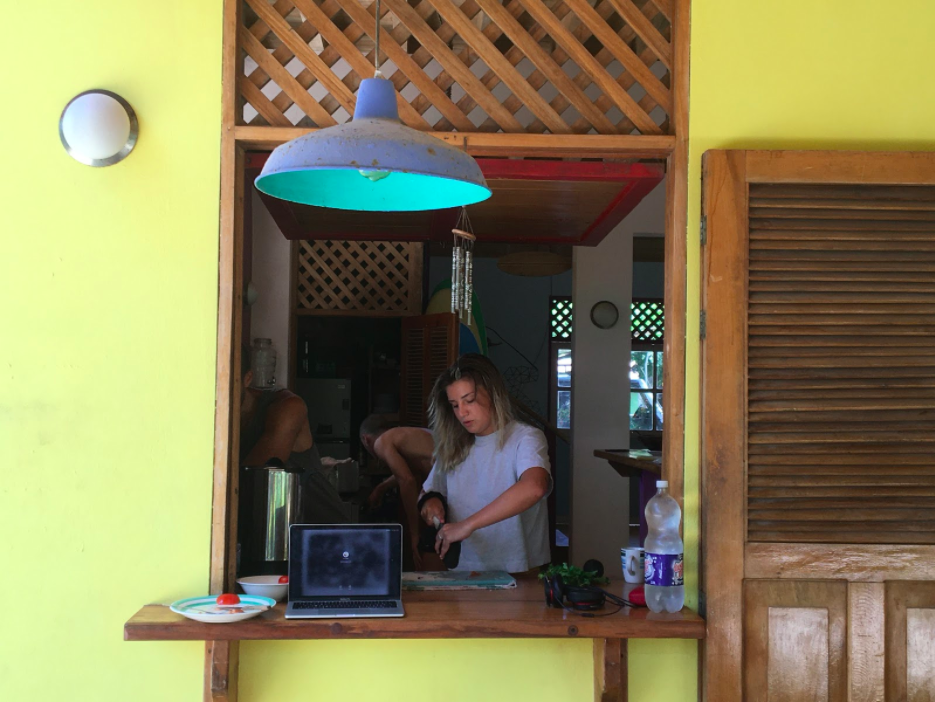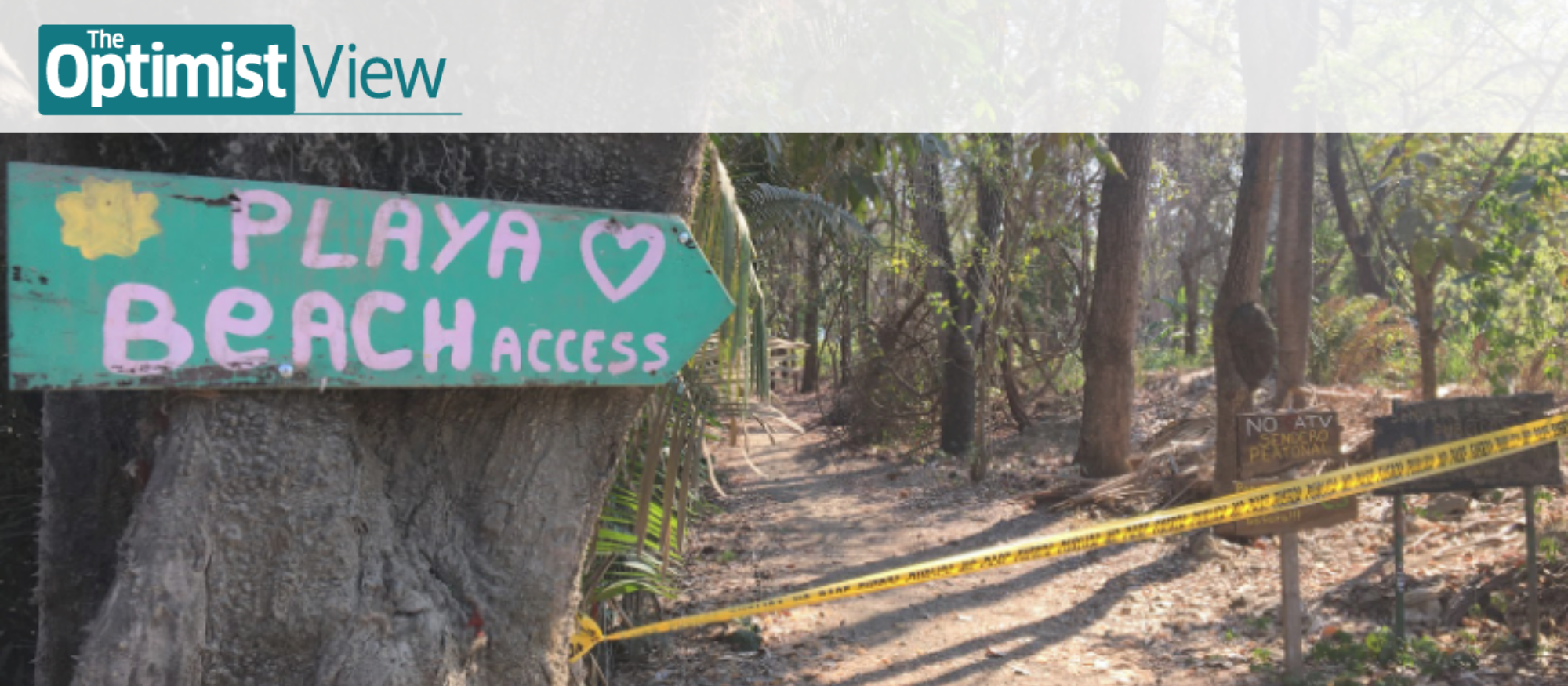“The absurdity (and the beauty) of this moment, is palpable”
The newspapers today read like a Gabriel García Márquez novel: the stories seem completely unreal, and yet, we are obliged to believe them. The question on every mind, “Is this really happening, or am I going crazy?”
The opening chapters of the Colombian author’s most-read work, One Hundred Years of Solitude, describe how an insomnia plague strikes the fictional town of Macondo, leaving all its inhabitants completely incapable of sleeping and causing the town to quarantine itself from the rest of the world.
One of the insomnia plague’s symptoms is that it erodes the memory, so much so that people must start putting labels on every object just to have a chance of remembering what it is and how it functions.
The local fortune-teller starts offering readings, using the same tarot cards she previously used to predict the future, only now her readings tell people about the forgotten past, creating an imaginary reality for the townspeople “which was less practical for them but more comforting.”
Eventually, a cure does arrive in Macondo, but not before the town endures an irreversible psychological break away from its past. After the plague, Macondo can no longer return to its old ways.
The parallels with our present reality are glaring. Here we are today, all of us in some form of quarantine, trying to remember what the world was like when we could leave our homes freely and embrace our neighbors in the streets—a time where we met in physical places rather than virtual Zoom rooms.
The absurdity is palpable.
If Macondo provides any clue, it is that when these days of quarantine are over, the world we will return to is bound to look very different from its former self.
Watching from afar
I know I’m not alone in feeling the surrealist weight of the coronavirus times, but what has given the last few weeks an extra touch of absurdity for me is the seat from which I am reading the news.
California is in lockdown. The Netherlands is in lockdown.
Both these places have served as home all my life, but during these quarantine times, I am in neither. As I write to you, I sit in a garden in Santa Teresa, Costa Rica.

I have been contributing to and editing the Optimist Daily for years, but you have hardly heard from me personally. I prefer to keep my identity unknown online. But given the present circumstances, and at the request of my Optimist Daily colleagues, I am venturing out of my bubble and sharing how life is here for a young man living in Costa Rica during a global pandemic.
To start with, I didn’t plan to be in Costa Rica during a global pandemic. Then again, the virus gave none of us time to plan anything. By the time I could really grasp the severity of all this, I was already on a plane leaving San Francisco en route to El Salvador.
For nearly four years, my life has been rooted in Rotterdam, The Netherlands. I feel at home there, even if the winters are notoriously bleak and gray. This winter felt particularly sun-deprived, so when I was asked to travel to San Francisco in order to present new research on blockchain technology, I decided I would turn the trip home into a four-month trek through Latin America. When March came, I sub-rented my apartment and left for California.
Upon arrival, it quickly became apparent that things weren’t business as usual in California. The supermarkets were in frenzy, my appointments were getting canceled, and the virus was dominating conversation. I remember sitting in the dining cart of the Amtrak Coastliner traveling to Santa Barbara when I overheard two conductors chatting with one another.
“I’m strong enough to deal with the dysfunction in Washington. I’m strong enough to deal with the coronavirus. But to handle both at the same time is just too much mental stress for me.”
This was the general tone I was hearing, stirring an unsettled feeling within me about the prospect of borders closing before I could leave.
The following day was spent in the company of the Optimist Daily team, providing a rare opportunity for us to all be together IRL. It was a beautiful bit of respite from the encroaching maelstrom, but it wouldn’t last long. Later as I walked alone down the State Street promenade, every television in sight displayed the same headline: NBA SEASON SUSPENDED DUE TO CORONAVIRUS FEARS.
That’s when I knew I had to leave. If the NBA was shutting down, surely there was much more to come.
Still, a big conundrum remained. Major travel restrictions were getting put in place between Europe and the US—and even if I did return to Rotterdam, I wouldn’t have my own room to stay in. Perhaps selfishly, I also wanted to be somewhere where I could find rest after what has been an intense, computer-heavy year.
My original plan was to travel mid-April to a surf hostel called Lost Boyz in Santa Teresa, a remote beach town on the Pacific side of Costa Rica, but I decided to shift plans forward. If borders did start closing, this seemed like an ideal place to get “stuck”. Two days later, I walked through the entrance of San Francisco Airport (SFO) for an early morning flight.
It was an icy shell of the airport I had walked into just days before. It felt like at any moment, the glass walls would shatter, breaking the eerie silence that hung in the air.

Shamelessly, I did enjoy the complete lack of lines at the airport. But as I boarded the plane with just a handful of others and greeted stewardesses in surgeon masks, I couldn’t help but question myself: Was it really such a good idea to travel now? Should I have just stayed with friends or family in California? Should I have gone back to a “Europe in Quarantine”? Am I going to be safe? Am I endangering others?
This last bit was gnawing at me the most: The idea that I could be a part of the problem by silently spreading the virus in Costa Rica after going through international airports. I felt guilty, but since there was no going back, I knew the only thing I could do is adhere to the COVID-19 health advice and just avoid touching anything.
These mixed feelings underscored one of the most surreal moments of my life, as I sat on what was practically a ghost plane wearing a makeshift mask as I headed to Central America—for the first time. I could feel the world changing beneath me, and I knew that it would be a very long time before life would resemble anything like “normal” to me again.
Touching down in Costa Rica
The first thing I encountered when I stepped out of the airport near San José was the heat. After a long Dutch winter, the baked air was melting away the angsty feelings I was having during the flight. Brushing off my dormant Spanish, I hailed a taxi to bring me to a modest B&B nearby, where I would stay the night. Early the next morning, the same taxi collected me to start the second leg of the journey, which required two buses and a ferry over the course of 6 hours.
The travel to Santa Teresa had mostly been a quiet affair through the beautiful Costa Rican countryside, but as we got closer to our destination, a woman from Barcelona started reading the news aloud for all us to hear. Apparently, the Costa Rican government had ordered all bars and restaurants to close; the number of confirmed cases in the country at that moment stood at 35. Meanwhile, Germany, Austria, Switzerland, and France were preparing to close their borders within three days. Beside me, a Swiss man was biting his nails.
For me, the news was much easier to digest than in previous days. I was already so far away from my typical life, and the lush green surroundings didn’t compute with the rather grave tone of the headlines. I felt that if I could just find a safe space to lay low during these coronavirus days, then I would be fine.
Moments later, the bus driver called out “Lost boyz!” in a thick accent as he pulled over the bus. He grabbed my backpack and pointed me up the dirt road leading to the hostel. The moment I walked through the door, an overwhelming sense of gratefulness poured over me. I had arrived—and what a precious place to arrive to.

Warm faces from all over the world greeted me as I walked through the wooden villa. In the backyard, a jungle garden awaited, spanning more than three acres and featuring a canopy of ancient-looking trees. On the highest branches of one tree, a family of howler monkeys sat stuffing themselves with bright pink flowers. It was paradise found.
Settling in

It’s been over three weeks since I first arrived. I have been bathing happily in the slow rhythm of life here, which has only gotten slower after shelter-in-place orders were put into effect. Yes, Costa Rica has clamped down on the coronavirus, putting restrictions into place that go beyond what many countries are doing.
The borders are closed. Hostels and hotels stopped accepting guests two weeks ago. A curfew restricts all travel after 8 PM, with cars banned from 5 PM onward. Above all, the beach is closed. I would love to say I’m quarantining on the beach, coconut in hand, but this is not the case. The paths to the beaches have been closed off with police tape.
The sound of the waves beckons, just beyond the trees. I feel a bit like Meursault at the end of Camus’s novel The Stranger when he can taste the salt in the air from his jail cell, which sits tantalizingly close to the beach.
Of course, I am not in a jail cell. I have felt quite at home in this little Eden—a feeling that was planted within me moments after arriving. As I sat in the garden admiring the trees that first day, one of the hostel’s owners told me I can stay here as long as I want and that they had stockpiled supplies for the coming months. Later that day when I met a local Costa Rican—also known as a Tico—he told me that even if Santa Teresa gets cut off from the rest of the world, we’ll be fine.
“The jungle provides for all,” he told me.
The Great Exodus
I arrived at Lost Boyz just before the great exodus. In that first week, I watched as travelers from Sweden to Israel scrambled to find a way back home. Frustrated faces could be seen everywhere, many of them waiting hours on the phone to get a confirmation from airlines, some of them moaning as flights got canceled in real-time. Though I felt thankful to steer clear of the travel pandemonium, it was disconcerting to watch other travelers, especially Dutch ones, go home.
Still, it wasn’t hard to remain convinced of staying put. I had made a few wonderful friends within hours of arriving, and beyond that, the World Health Organization was calling on people to avoid all non-essential travel. The message around the world was “stay home.” I was done with eerie airports. Santa Teresa was going to be home—I just didn’t know for how long (still don’t).
Once most of the travelers had left, only a few guests remained in the hostel—all of whom were in a similar situation to me. The hostel, however, didn’t stay too quiet. With the announcement of the shelter-in-place restrictions, friends and family of the hostel moved into this jungle villa to quarantine together. It’s become quite the family, with twelve of us living here amongst five dogs, four cats, and all the other wildlife crawling nearby. It almost feels like a tropical reality TV show, as many of us get to know each other for the first time.
Quarantine days
It’s hot. Sometimes hotter than I ever imagined I could stand. Sweat falls from my palms as I write this, my brain slowly melting as the sun reaches its zenith.

Two weeks ago my hair was dripping with sweat as I sat in the backyard. Across the garden, one of the quarantine mates from London was shaving the hair off another. I walked over and asked if she could do the same for me. After a decade of having roughly the same long hair cut, I had all my hair shaved all off like Dr. Evil—FYI, a breeze passing by over your newly bald head is an incredible sensation.
Since we can no longer rely on the sea to cool us off, all but one of the half-dozen men living here have buzzed off their hair to deal with the heat. We look like clones—or like a strange cult.
Each of my days is spent in roughly the same fashion as the last. I awaken before the sun rises to enjoy the scenery without the heat. Usually, the howler monkeys come out around 5 AM, making deep growling noises that you wouldn’t expect from such small creatures. I haven’t grown tired of watching them climb in the canopy above.
If I can motivate myself, I try to exercise before the sun rises. Otherwise, I just drink a coffee with the security guard here, Jony, a Nicaraguan who is the same age as me. In the distance, you can already hear a loudspeaker blaring through the streets, telling people to stay home. After breakfast, I spend a few hours working from my computer until the heat becomes too much to bear. The late afternoon is then spent in the company of my new family here, talking and making music. Slowly, the curious personal stories of everyone’s lives are coming out, making our days all the more interesting.

In the evenings we have a family dinner together and choose something to do for the night. One night we might watch a film, the other we mix music and have a small dance party. Whatever it might be, there’s a sincere feeling of gratefulness I feel each night just to be safe beneath these lush canopies.
Thinking of Macondo
One of my closest friends here is a 34-year-old Swedish-Ethiopian man. He had two flights canceled when he tried to return home, so he’s decided to stay. Each day we talk about the absurdity of reading about the state of the world from our phones. It’s our only portal to the world we knew so well, a world that has changed infinitely since we both left our respective homes. It doesn’t feel real.
From that portal, the world feels dystopian. But when I speak to my friends and family in quarantine around the world, my sentiments change. Despite it all, they are finding ways to cope, to laugh, and to dance. I’ve seen spurts of creativity come from friends that would have never arisen had they not been forced to stay home. More than one friend has told me that the quarantine has given them a moment to reevaluate life and focus on what really matters. There’s always a silver lining.
As I sit here in the same humid heat that the fictional town of Macondo supposedly felt, I think of what the world will look like when I leave this place. Will we finally learn that slower is better for the environment, and for our minds? Will we finally start viewing people not as economic units, but rather, as humans with a right to well-being? Will we start shifting away from a demand economy? Will we be ready for the next possible outbreak?
The world is fertile for massive change when this is all through, and it’s up to us to shape it into a better place than it was before. As for now, all we can do is make the most of these half-speed days. I know I will. Pura Vida.
_____________________________
About the Author:
Marvin Lanes is the Editorial Manager at the Optimist Daily. Here’s how he describes himself: “I am a 23-year-old Dutch-American writer, researcher, and musician based out of Rotterdam, The Netherlands. I consider myself a ‘conditional optimist’, always trying to recognize the facts of any situation and pursuing the optimal path forward. My main journalistic focus points are the climate, new technology, design, and culture.” All images in this article were also taken by Marvin.











